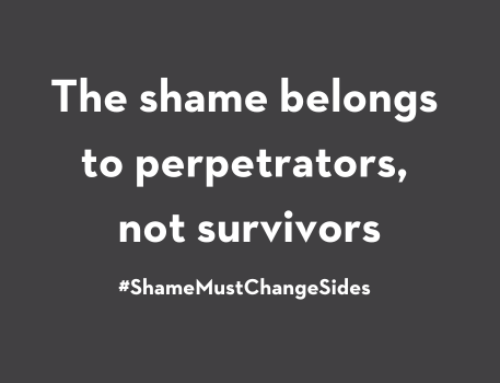Earlier this year, one of Canada’s best-known investigative journalists released Had It Coming: What’s Fair in the Age of #MeToo.
In 2017, the Globe and Mail published Robyn Doolittle’s Unfounded investigation, which found that 1 in 5 sexual assault complaints were deemed baseless – or, “unfounded” – by Canada’s police. The investigation revealed the persistence of rape myths and stereotypes in Canada’s justice system.
In her second book, Robyn explores the impact of the #MeToo movement in Canada. The book seeks to respond, in part, to the question “Now what?”. Below are four key takeaways reached in the book and resources for further reading.
1. The laws aren’t the problem
Robyn notes that while rape myths and stereotypes about victims persist within the justice system, the issues illuminated by #MeToo won’t wholly be solved in the courts. Had It Coming points out that Canada has some of the most progressive sexual assault laws in the world, treating sexual assault – at least, on paper – with the severity it deserves. Had it Coming suggests that we focus more on changing attitudes and emphasizes the importance of consent education with young people that prioritizes discussions of ethical behavior and pleasure.
Further reading: Action Canada for Sexual Health and Rights connects the high rates of sexual assault among young people with a lack of education from parents or teachers about consent and healthy relationships.
2. The redemption question doesn’t have a straightforward answer
As #MeToo developed, public attention began to focus not only on sexual harassment and assault but also on power and patriarchy. As an example, Robyn pulls apart the different conversations around the article “I went on a date with Aziz Ansari: It was the worst night of my life.” The book asks us to confront questions such as, how do we respond to cases where someone hasn’t technically committed a crime, but was said to have pressured someone to consent? Had it Coming suggests the redemption question isn’t straightforward and depends on each case. Potentially, redemption in these situations involves an act of contrition that we haven’t seen an example of, yet. The book also suggests these questions are necessary, productive, and part of the broader #MeToo story as opposed to being representative of #MeToo “going too far.”
Further reading: Founder of the #MeToo movement, Tarana Burke, has also said “we have to grapple with this question of who can come back and who can’t.” As we do that, we may find ourselves having mixed feelings or contradictory ideas about someone. It’s easy, particularly online, for this ambivalence to slip into skepticism about #MeToo becoming a “witch hunt.” But others have felt moments like the Aziz Ansari case have made such ambivalence an essential part of the #MeToo story.
3. It’s difficult to have these conversations on social media
Had it Coming argues that “social media is not conducive to conversation. It’s a place to yell” because users often want to signal to their social group that they share the group’s values in a show of “tribalism.” Robyn outlines examples of inviting others in to the conversation that had a positive effect on those who had outdated ideas, such as Judge Robin Camp who was ordered to take gender and sensitivity training following his misogynistic comments.
Further reading: The question of the role of social media remains contentious – many studies agree that social media is polarizing, pointing to algorithms that filter out opinions we disagree with. Others argue that challenging and fighting back against hateful speech is needed to create a safer digital landscape in the age of democratized online publishing.
4. Measured debate is key
Had it Coming invites us to consider how to approach people whose ideas about sexual violence and harassment are outdated. When sitting with “Uncle Bob” over dinner, for example, the book suggests avoiding the “call out” style that we often see online. Rather, we should try to invite those who may not understand rape culture into a productive conversation. It’s always good to stay aware that we all have our own biases and learning curves when it comes to these issues. Robyn points out that she herself held certain outdated ideas prior to her Unfounded research – which illuminated the harm caused by such beliefs – and that it took learning and unlearning to change those ideas.
Further reading: Some activists seeking to challenge power and privilege have argued that discomfort from those who might hold outdated ideas is part of the learning journey and isn’t the educator’s responsibility to avoid. Activist and author Rachel Cargle’s work on intersectional feminism places significant importance on “being uncomfortable and staying uncomfortable.”
Learn More:
- The Facts: #MeToo Movement in Canada
- Blog: Dating a Survivor of Sexual Violence – How to Support Your Partner
- Blog: Campus Sexual Violence and #MeToo: Q&A with Bailey Reid
Take Action:







